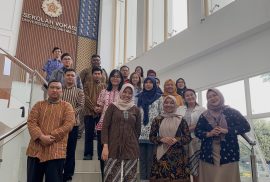Workshop Strategi Pencapaian Target Pemberitaan SDGs Sekolah Vokasi UGM Tahun 2024
Info TSPD Kamis, 7 Maret 2024
Workshop Strategi Pencapaian Target Pemberitaan SDGs Sekolah Vokasi UGM Tahun 2024
Hari, tanggal : Kamis, 7 Maret 2024
Waktu : 09.00 – 13.00 WIB
Lokasi : Ruang 201 (Lantai 2) Gedung Teaching Industry Learning Center (TILC) SV UGM
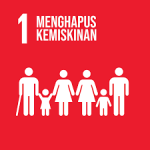
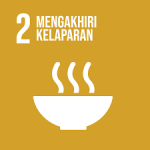
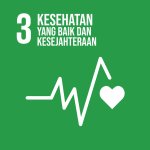
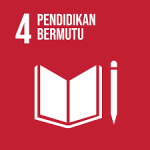
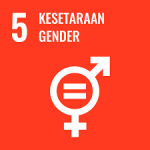
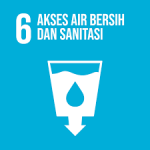
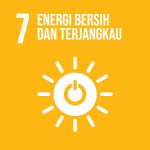
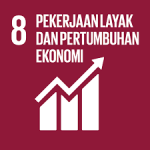
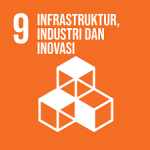
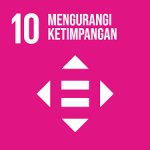
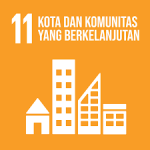
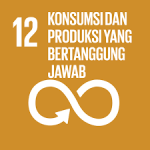
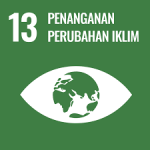
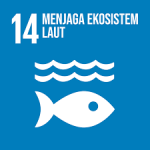
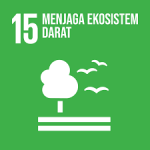
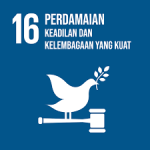
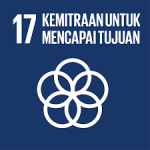
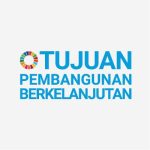
Kata Kunci (Keywords)

SDG 1 (No poverty)
Menghapus Kemiskinan| No. | SDG 1 (No poverty) |
|---|---|
| 1 | Developing countries |
| 2 | Basic services |
| 3 | Class |
| 4 | Disadvantaged |
| 5 | Economic resources |
| 6 | End poverty |
| 7 | Environment |
| 8 | Equality |
| 9 | Extreme poverty |
| 10 | Financial inclusion |
| 11 | Income |
| 12 | Income equality |
| 13 | Microfinance |
| 14 | Non-discrimination |
| 15 | Poor |
| 16 | Poor and vulnerable |
| 17 | Poverty |
| 18 | Poverty eradication |
| 19 | Poverty line |
| 20 | Quality of Life |
| 21 | Resources |
| 22 | Social protection systems / social protection |
| 23 | Sustainable |
| 24 | Third World |
| 25 | Vulnerable |
| 26 | Wealth distribution |

SDG 2 (Zero Hunger)
Mengakhiri Kelaparan| No. | SDG 2 (Zero Hunger) |
|---|---|
| 1 | Agricultural Orientation index |
| 2 | Agricultural productivity |
| 3 | Agriculture |
| 4 | Consume |
| 5 | Crop diversity |
| 6 | Crops |
| 7 | Doha Development Round / Doha Round |
| 8 | End hunger |
| 9 | Environment |
| 10 | Food |
| 11 | Food gap |
| 12 | Food production |
| 13 | Food reserves |
| 14 | Food Security |
| 15 | Genetic diversity |
| 16 | Genetic diversity of seeds |
| 17 | Genetics |
| 18 | Hunger people |
| 19 | Hungry |
| 20 | Improved nutrition |
| 21 | Innovations and health |
| 22 | Legumes |
| 23 | Maize |
| 24 | Malnourished |
| 25 | Malnutrition |
| 26 | Nutrition |
| 27 | Nutritional needs |
| 28 | Nutritious |
| 29 | Poverty |
| 30 | Produce |
| 31 | Productivity |
| 32 | Quality of life |
| 33 | Resilient agriculture |
| 34 | Rural infrastructure |
| 35 | Small-scale food producers |
| 36 | Stunted growth |
| 37 | Stunting |
| 38 | Sufficient food |
| 39 | Sustainable |
| 40 | Sustainable agriculture |
| 41 | Sustainable food production |
| 42 | Trade diversity |
| 43 | Trade restrictions |
| 44 | Under nourished / Undernourished |
| 45 | Wasting |
| 46 | World’s hungry |

SDG3 (Good health and well-being)
Kesehatan yang baik dan kesejahteraan| No. | SDG3 (Good health and well-being) |
|---|---|
| 1 | Access to clean water and sanitation |
| 2 | Affordable medicines |
| 3 | AIDS |
| 4 | Air contamination |
| 5 | Air pollution |
| 6 | Alcohol abuse |
| 7 | Antenatal care |
| 8 | Antiretroviral |
| 9 | Antiretroviral therapy |
| 10 | Biomedical |
| 11 | Bodily autonomy |
| 12 | Child deaths |
| 13 | Contraceptive use |
| 14 | Death rate |
| 15 | Dental |
| 16 | Disability and family support |
| 17 | Disability and inclusion |
| 18 | Disability and politics of location |
| 19 | Diseases |
| 20 | Family planning |
| 21 | Health |
| 22 | Health in resource-constrained settings |
| 23 | Health worker density |
| 24 | Healthy |
| 25 | Healthy lives |
| 26 | Hepatitis |
| 27 | HIV |
| 28 | Improving mortality |
| 29 | Increasing life expectancy |
| 30 | Indigenous |
| 31 | Infected |
| 32 | International health policy |
| 33 | International health regulations |
| 34 | Malaria |
| 35 | Maternal mortality |
| 36 | Measles |
| 37 | Medical |
| 38 | Mental health |
| 39 | Mortality |
| 40 | Mortality rate |
| 41 | Narcotic drug abuse |
| 42 | Neonatal mortality |
| 43 | Polio |
| 44 | Premature mortality |
| 45 | Preventable deaths |
| 46 | Reducing malaria |
| 47 | Reducing mortality |
| 48 | Refugees and health services |
| 49 | Reproductive health |
| 50 | Road traffic accidents |
| 51 | Sexual and reproductive health-care |
| 52 | Sexual health |
| 53 | Soil contamination |
| 54 | Soil pollution |
| 55 | Tobacco control |
| 56 | Treatment of substance abuse |
| 57 | Tuberculosis |
| 58 | Universal health |
| 59 | Universal health coverage |
| 60 | Vaccines |
| 61 | Vaccines in developing countries |
| 62 | Violence |
| 63 | WASH |
| 64 | Water, Sanitation and Hygiene for All |
| 65 | Water-borne disease wellbeing/well being/well-being |
| 66 | World Health Organisation |

SDG 4 (Quality education)
Pendidikan bermutu| No. | SDG 4 (Quality education) |
|---|---|
| 1 | Access to education |
| 2 | Basic education |
| 3 | Basic literacy |
| 4 | Basic literacy skills |
| 5 | Cultural diversity |
| 6 | Disability |
| 7 | Disability and education |
| 8 | Early childhood |
| 9 | Early childhood development |
| 10 | Education |
| 11 | Education for sustainability |
| 12 | Education in developing |
| 13 | Enrolment |
| 14 | Equal access |
| 15 | Equal education |
| 16 | Equitable education |
| 17 | Gender disparities in education |
| 18 | Gender disparity |
| 19 | Gender equality |
| 20 | Gender equity |
| 21 | Gender sensitive |
| 22 | Global citizenship |
| 23 | Global education |
| 24 | Inclusion and education |
| 25 | Inclusive |
| 26 | Innovation |
| 27 | International cooperation |
| 28 | Learning opportunities |
| 29 | Lifelong learning |
| 30 | Literacy |
| 31 | Literacy skills |
| 32 | Numeracy |
| 33 | Preprimary education |
| 34 | Primary education |
| 35 | Qualified teachers |
| 36 | Refugees and learning |
| 37 | Scholarships |
| 38 | School |
| 39 | School enrolment |
| 40 | Secondary education |
| 41 | Teacher training |
| 42 | Universal education |
| 43 | Vocational training |
| 44 | Vulnerable |
| 45 | Women's rights |

SDG 5 (Gender equality)
Kesetaraan gender| No. | SDG 5 (Gender equality) |
|---|---|
| 1 | Basic living standards |
| 2 | Dignity |
| 3 | Disadvantaged |
| 4 | Discrimination |
| 5 | Employment |
| 6 | Empower girls |
| 7 | Empowerment |
| 8 | Empowerment of women / empower women / women's empowerment |
| 9 | Equal access |
| 10 | Equal opportunities |
| 11 | Equality |
| 12 | Exploitation |
| 13 | Female genital mutilation |
| 14 | Feminism |
| 15 | Forced marriage |
| 16 | Gender |
| 17 | Gender discrimination |
| 18 | Gender equality/parity |
| 19 | Governance and gender |
| 20 | Human rights |
| 21 | Human trafficking |
| 22 | Humanitarian |
| 23 | Marginalised |
| 24 | Parity |
| 25 | Pay |
| 26 | Reproductive rights |
| 27 | Sexual and reproductive health |
| 28 | Sexual exploitation |
| 29 | Sexual violence |
| 30 | Social inclusion |
| 31 | Trafficking |
| 32 | Universal health coverage |
| 33 | Violence |
| 34 | Violence against girls |
| 35 | Violence against women |
| 36 | Women |
| 37 | Women in work |
| 38 | Women's rights |
| 39 | Workplace equality |

SDG 6 (Clean water and sanitation)
Akses air bersih dan sanitasi| No. | SDG 6 (Clean water and sanitation) |
|---|---|
| 1 | Accessible water |
| 2 | Affordable drinking water |
| 3 | Aquifer |
| 4 | Cities |
| 5 | Clean water |
| 6 | Contaminated |
| 7 | Defecation |
| 8 | Desalination |
| 9 | Diarrheal diseases |
| 10 | Drought |
| 11 | Dumping |
| 12 | Ecosystem protection |
| 13 | Ecosystem restoration |
| 14 | Equitable sanitation |
| 15 | Floods |
| 16 | Fresh water |
| 17 | Hydropower |
| 18 | Hygiene |
| 19 | Improving water |
| 20 | Inadequate water |
| 21 | Inadequate water supply |
| 22 | Infrastructure |
| 23 | Irrigation |
| 24 | Lakes |
| 25 | Latrines |
| 26 | Open defecation |
| 27 | Pollution |
| 28 | Recycled water |
| 29 | Reuse |
| 30 | River basins |
| 31 | Rivers |
| 32 | Safe drinking water |
| 33 | Sanitation |
| 34 | Sanitation and hygiene |
| 35 | Sanitation management |
| 36 | Sewerage |
| 37 | Sustainable water management |
| 38 | Sustainable withdrawals |
| 39 | Third world |
| 40 | Toilets |
| 41 | Untreated wastewater |
| 42 | Urban |
| 43 | Waste |
| 44 | Wastewater |
| 45 | Wastewater treatment |
| 46 | Water |
| 47 | Water access |
| 48 | Water disasters |
| 49 | Water ecosystems |
| 50 | Water efficiency |
| 51 | Water harvesting |
| 52 | Water quality |
| 53 | Water resources management |
| 54 | Water scarcity |
| 55 | Water supply |
| 56 | Water-related ecosystems |
| 57 | Water-use efficiency |

SDG 7 (Affordable and clean energy)
Energi bersih dan terjangkau| No. | SDG 7 (Affordable and clean energy) |
|---|---|
| 1 | Affordable energy |
| 2 | Alternative energy |
| 3 | Animal waste |
| 4 | Battery |
| 5 | Carbon |
| 6 | Charcoal |
| 7 | Clean energy |
| 8 | Clean energy technology |
| 9 | Clean fuel technology |
| 10 | Clean fuels |
| 11 | Cleaner fossil fuel technology |
| 12 | Climate goal |
| 13 | Coal |
| 14 | Electricity |
| 15 | Electricity infrastructure |
| 16 | Emissions |
| 17 | Energy |
| 18 | Energy efficiency |
| 19 | Energy infrastructure |
| 20 | Energy research |
| 21 | Energy technology |
| 22 | Fossil-fuel |
| 23 | Green economy |
| 24 | Greenhouse gas |
| 25 | Greenhouse gas emissions |
| 26 | Hydroelectric |
| 27 | Low carbon |
| 28 | Modern electricity |
| 29 | Modern energy |
| 30 | Reliable energy |
| 31 | Renewable |
| 32 | Renewable energy |
| 33 | Renewable power |
| 34 | Solar |
| 35 | Solar energy |
| 36 | Solar power |
| 37 | Sustainable energy |
| 38 | Sustainable energy services |
| 39 | Sustainable power |
| 40 | Vehicles |
| 41 | Wave |
| 42 | Wind |
| 43 | Wind power |
| 44 | Wind turbine |
| 45 | Wood |

SDG 8 (Decent work and economic growth)
Pekerjaan layak dan pertumbuhan ekonomi| No. | SDG 8 (Decent work and economic growth) |
|---|---|
| 1 | Aid for trade |
| 2 | Banking |
| 3 | Child labour |
| 4 | Child soldiers |
| 5 | Creativity and innovation |
| 6 | Culture |
| 7 | Decent work |
| 8 | Decent work for all |
| 9 | Development oriented policy |
| 10 | Economic growth |
| 11 | Economic productivity |
| 12 | Economy |
| 13 | Enterprises |
| 14 | Entrepreneurship |
| 15 | Forced labour |
| 16 | GDP growth |
| 17 | Global resource efficiency |
| 18 | Global trade |
| 19 | Gross domestic product growth |
| 20 | Human trafficking |
| 21 | Inclusive economic growth |
| 22 | Innovation |
| 23 | Insurance |
| 24 | Job creation |
| 25 | Jobs |
| 26 | Labour market |
| 27 | Labour rights |
| 28 | Micro finance |
| 29 | Migrant workers |
| 30 | Modern slavery |
| 31 | Poverty eradication |
| 32 | Poverty line |
| 33 | Productive employment |
| 34 | Productivity |
| 35 | Public policy |
| 36 | Quality jobs |
| 37 | Quality of life |
| 38 | Resource efficiency |
| 38 | Safe work |
| 40 | Secure work |
| 41 | Slavery |
| 42 | Social policies |
| 43 | Society |
| 44 | Stable employment |
| 45 | Stable jobs |
| 46 | Sustainable consumption |
| 47 | Sustainable economic growth |
| 48 | Sustainable production |
| 49 | Sustainable tourism |
| 50 | Trade |
| 51 | Unemployment |
| 52 | Well-paid jobs |
| 53 | Women migrants |
| 54 | Work |
| 55 | Work opportunities |
| 56 | World trade |
| 57 | Youth employment |
| 58 | Youth unemployment |
| 59 | Equal pay |
| 60 | Finance |
| 61 | Financial services |

SDG 9 (Industry, innovation and infrastructure)
Infrastruktur, industri dan inovasi| No. | SDG 9 (Industry, innovation and infrastructure) |
|---|---|
| 1 | Access to the internet |
| 2 | Affordable access |
| 3 | Affordable credit |
| 4 | Clean technologies |
| 5 | Cooperation |
| 6 | Data banks |
| 7 | Economic development |
| 8 | Electrical power |
| 9 | Energy |
| 10 | Enterprises |
| 11 | Environmentally sound technologies |
| 12 | Financial services |
| 13 | ICT infrastructure |
| 14 | Industrial diversification |
| 15 | Industrialisation |
| 16 | Information and communication technology |
| 17 | Infrastructure |
| 18 | Innovation |
| 19 | Internet access |
| 20 | Irrigation |
| 21 | Knowledge in education for all |
| 22 | Mobile networks in developing countries |
| 23 | National Security |
| 24 | Network infrastructure |
| 25 | Phone service |
| 26 | Public policy |
| 27 | Quality of life |
| 28 | Regional infrastructure |
| 29 | Research |
| 30 | Resilient infrastructure |
| 31 | Resource use efficiency |
| 32 | Roads |
| 33 | Sanitation |
| 34 | Scientific research |
| 35 | Society |
| 36 | Sustainable industrialisation |
| 37 | Sustainable infrastructure |
| 38 | Technological capabilities |
| 39 | Technology |
| 40 | Trade |
| 41 | Transborder infrastructure |
| 42 | Transport |
| 43 | Value chains |
| 44 | Value chains and markets |
| 45 | Water infrastructure |
| 46 | Water resources |

SDG 10 (Reduced inequalities)
Mengurangi ketimpangan| No. | SDG 10 (Reduced inequalities) |
|---|---|
| 1 | Affordable housing |
| 2 | Age |
| 3 | Ageism |
| 4 | Business |
| 5 | Children |
| 6 | Culture |
| 7 | Developing countries |
| 8 | Developing states |
| 9 | Development assistance |
| 10 | Disabilities |
| 11 | Discrimination |
| 12 | Discriminatory |
| 13 | Economy |
| 14 | Education |
| 15 | Empower |
| 16 | Equal opportunity |
| 17 | Equality |
| 18 | Equity |
| 19 | Ethnicity |
| 20 | Financial assistance |
| 21 | Foreign aid |
| 22 | Foreign investment |
| 23 | Gender |
| 24 | Global financial markets |
| 25 | Health |
| 26 | Homelessness |
| 27 | Homophobia |
| 28 | Human rights |
| 29 | Inclusion |
| 30 | Income growth |
| 31 | Income inequality |
| 32 | Indigenous |
| 33 | Inequalities |
| 34 | Inequality |
| 35 | Migrant remittance |
| 36 | Migration |
| 37 | Population growth |
| 38 | Poverty |
| 39 | Public policy |
| 40 | Quality of life |
| 41 | Race |
| 42 | Racisim |
| 43 | Reduce inequalities |
| 44 | Religion |
| 45 | Rural |
| 46 | Sex |
| 47 | Sexism |
| 48 | Social protection |
| 49 | Society |
| 50 | Vulnerable nations |
| 51 | World trade |

SDG 11 (Sustainable cities and communities)
Kota dan komunitas yang berkelanjutan| No. | SDG 11 (Sustainable cities and communities) |
|---|---|
| 1 | Adaptable |
| 2 | Adaptation |
| 3 | Affordable housing |
| 4 | Air pollution |
| 5 | Air quality |
| 6 | Cities |
| 7 | Climate change |
| 8 | Community |
| 9 | Cultural heritage |
| 10 | Decentralisation |
| 11 | Development planning |
| 12 | Disaster management |
| 13 | Disaster risk reduction |
| 14 | Disaster Strategy |
| 15 | Disasters |
| 16 | Fine particulate matter |
| 17 | Green spaces |
| 18 | Heritage |
| 19 | Housing |
| 20 | Human settlements |
| 21 | Impact of cities |
| 22 | Inadequate housing |
| 23 | Informal settlements |
| 24 | Infrastructure |
| 25 | Land |
| 26 | Land consumption |
| 27 | local materials |
| 28 | mitigation |
| 29 | Natural disasters |
| 30 | Natural heritage |
| 31 | Over crowding |
| 32 | Pollution |
| 33 | Population |
| 34 | Population growth |
| 35 | Public spaces |
| 36 | Public transport |
| 37 | Resilient |
| 38 | Resilient buildings |
| 39 | Resource efficiency |
| 40 | Resource needs |
| 41 | Risk reduction strategy |
| 42 | Road safety |
| 43 | Safe cities |
| 44 | Shanty |
| 45 | Slums |
| 46 | Smart cities |
| 47 | Solid waste |
| 48 | Suburban |
| 49 | Sustainable |
| 50 | Sustainable building/s |
| 51 | Sustainable cities/city |
| 52 | Sustainable communities |
| 53 | Sustainable urbanisation |
| 54 | Town planning |
| 55 | Transport |
| 56 | Transport systems |
| 57 | Urban |
| 58 | Urban development |
| 59 | Urban planning |
| 60 | Urban sustainability |
| 61 | Urbanisation |
| 62 | Waste |
| 63 | Waste generation |
| 64 | Waste management |
| 65 | Water |
| 66 | Water-related disasters |

SDG 12 (Responsible consumption and production)
Konsumsi dan produksi yang bertanggung jawab| No. | SDG 12 (Responsible consumption and production) |
|---|---|
| 1 | Capitalism |
| 2 | Cars |
| 3 | Circular economy |
| 4 | Commercial enterprises |
| 5 | Consumer levels |
| 6 | Consumerism |
| 7 | Consumption |
| 8 | Deep decarbonisation |
| 9 | Ecological |
| 10 | Efficient use of resources |
| 11 | Energy |
| 12 | Energy consumption |
| 13 | Energy efficiency |
| 14 | Energy use |
| 15 | Food |
| 16 | Food losses |
| 17 | Food supply |
| 18 | Food waste |
| 19 | Fossil fuel subsidies |
| 20 | Future proof |
| 21 | Global food waste |
| 22 | Greenhouse gasses |
| 23 | Harvest losses |
| 24 | Life cycle |
| 25 | Market distortions |
| 26 | Materialism |
| 27 | Materials goods |
| 28 | Monitoring sustainable development |
| 29 | Natural resources |
| 30 | Obsolescence |
| 31 | Overconsumption |
| 32 | Production |
| 33 | Recycle |
| 34 | Recycling |
| 35 | Reduce waste generation |
| 36 | Reduction |
| 37 | Renewable |
| 38 | Resource efficiency |
| 39 | Responsible production chains |
| 40 | Retail |
| 41 | Retail industry |
| 42 | Reuse |
| 43 | Sustainable |
| 44 | Sustainable consumption |
| 45 | Sustainable management |
| 46 | Sustainable practices |
| 47 | Sustainable production |
| 48 | Sustainable public procurement |
| 49 | Sustainable resource use |
| 50 | Sustainable supply chain |
| 51 | Sustainable tourism |
| 52 | Vehicles |
| 53 | Waste |
| 54 | Wasteful consumption |
| 55 | Water |
| 56 | Water pollution |
| 57 | Water supply |

SDG 13 (Climate action)
Penanganan perubahan iklim| No. | SDG 13 (Climate action) |
|---|---|
| 1 | Average global temperature |
| 2 | Carbon |
| 3 | Carbon dioxide |
| 4 | Changing weather patterns |
| 5 | Climate |
| 6 | Climate action |
| 7 | Climate adaptation |
| 8 | Climate and gender |
| 9 | Climate and infectious disease |
| 10 | Climate and politics |
| 11 | Climate change |
| 12 | Climate change management |
| 13 | Climate change planning |
| 14 | Climate change policy |
| 15 | Climate early warning |
| 16 | Climate hazards |
| 17 | Climate impact |
| 18 | Climate mitigation |
| 19 | Climate refugees |
| 20 | Climate related hazards |
| 21 | Climate resilience |
| 22 | CO2 capture |
| 23 | CO2 conversion |
| 24 | COP 21 |
| 25 | COP 22 |
| 26 | Ecosystems |
| 27 | Emissions |
| 28 | Extreme weather |
| 29 | Extreme weather events |
| 30 | Global mean temperature |
| 31 | Global temperature |
| 32 | Global warming |
| 33 | Greenhouse gas |
| 34 | Greenhouse gas emissions |
| 35 | Greenhouse gases |
| 36 | Ice loss |
| 37 | Low-carbon economy |
| 38 | Natural disasters |
| 39 | Natural systems |
| 40 | Ocean warming |
| 41 | Paris Agreement |
| 42 | Pollution |
| 43 | Renewable |
| 44 | Sea level rise / Rising sea / Rising sea level |
| 45 | Temperature |
| 46 | Warming |

SDG 14 (Life below water)
Menjaga ekosistem laut| No. | SDG 14 (Life below water) |
|---|---|
| 1 | Artisanal fishers |
| 2 | Biodiversity |
| 3 | Carbon dioxide |
| 4 | Coastal biodiversity |
| 5 | Coastal ecosystems |
| 6 | Coastal habitats |
| 7 | Coastal parks |
| 8 | Coastal resources |
| 9 | Coastlines |
| 10 | Conserve |
| 11 | Conserve oceans |
| 12 | Coral bleaching |
| 13 | Coral reef |
| 14 | Ecosystem management |
| 15 | Fish species |
| 16 | Fish stocks |
| 17 | Fish stocks AND FISHERIES MANAGEMENT |
| 18 | Fisheries |
| 19 | Fishers |
| 20 | Fishing |
| 21 | Fishing practices |
| 22 | Global warming |
| 23 | Illegal fishing |
| 24 | Kelp |
| 25 | Law of the Sea |
| 26 | Marine |
| 27 | Marine areas |
| 28 | Marine biodiversity |
| 29 | Marine ecosystems |
| 30 | Marine fisheries |
| 31 | Marine Parks |
| 32 | Marine pollution |
| 33 | Marine resources |
| 34 | Ocean |
| 35 | Ocean acidification |
| 36 | Ocean temperature |
| 37 | Oceanography |
| 38 | Oceans |
| 39 | Overfishing |
| 40 | Productive oceans |
| 41 | Protected areas |
| 42 | Sea grasses |
| 43 | Seas |
| 44 | Sustainable ecosystems |
| 45 | Unregulated fishing |
| 46 | Water resources and policy |

SDG 15 (Life on land)
Menjaga ekosistem darat| No. | SDG 15 (Life on land) |
|---|---|
| 1 | Afforestation |
| 2 | Agriculture |
| 3 | Animals |
| 4 | Arable land |
| 5 | Bees |
| 6 | Biodiversity |
| 7 | Biodiversity loss |
| 8 | Conservation |
| 9 | Deforestation |
| 10 | Desertification |
| 11 | Drought |
| 12 | Drylands |
| 13 | Ecosystem |
| 14 | Ecosystem restoration |
| 15 | Ecosystems |
| 16 | Extinct |
| 17 | Extinct species |
| 18 | Extinction |
| 19 | Forest |
| 20 | Forest management |
| 21 | Forests |
| 22 | Genetic resources |
| 23 | Illegal wildlife products |
| 24 | Illicit trafficking |
| 25 | Indigenous |
| 26 | Indigenous populations |
| 27 | Invasive alien species |
| 28 | Land conservation |
| 29 | Land loss |
| 30 | Land use and sustainability |
| 31 | Manage forests |
| 32 | Managed forests |
| 33 | Micro-organisms |
| 34 | Permaculture |
| 35 | Plants |
| 36 | Poaching |
| 37 | Poverty |
| 38 | Protected fauna |
| 39 | Protected flora |
| 40 | Protected species |
| 41 | Reforestation |
| 42 | Soil |
| 43 | Soil degradation |
| 44 | Species |
| 45 | Strategic plan for biodiversity |
| 46 | Terrestrial ecosystems |
| 47 | Threatened species |
| 48 | Tree |
| 49 | Tree species |
| 50 | Wetlands |

SDG 16 (Peace, justice and strong institutions)
Perdamaian keadilan dan kelembagaan yang kuat| No. | SDG 16 (Peace, justice and strong institutions) |
|---|---|
| 1 | Abuse |
| 2 | Accountability |
| 3 | Accountable institutions |
| 4 | Arbitrary detention |
| 5 | Arms |
| 6 | Arms trafficking |
| 7 | Birth registration |
| 8 | Bribery |
| 9 | Combat terrorism |
| 10 | Conflict resolution |
| 11 | Conflicts |
| 12 | Corruption |
| 13 | Discrimination |
| 14 | Education |
| 15 | Enforced disappearance |
| 16 | Equal access |
| 17 | Equity |
| 18 | Exploitation |
| 19 | Flow of arms |
| 20 | Freedom |
| 21 | Geography of poverty |
| 22 | Governance |
| 23 | Hate crime |
| 24 | Human rights |
| 25 | Human trafficking |
| 26 | Illegal arms |
| 27 | Illicit financial flows |
| 28 | Inclusion |
| 29 | Inclusive institutions |
| 30 | Inclusive societies/society |
| 31 | Institutions |
| 32 | Internally displaced |
| 33 | Judiciary |
| 34 | Justice |
| 35 | Justice for all |
| 36 | Legal identity |
| 37 | National Security |
| 38 | Non-violence |
| 39 | Organized crime |
| 40 | Paris principles |
| 41 | Peace |
| 42 | Peaceful societies |
| 43 | Physical abuse |
| 44 | Police |
| 45 | Prevent violence |
| 46 | Psychological abuse |
| 47 | Public policy |
| 48 | Quality of life |
| 49 | Representative decision-making |
| 50 | Rule of law |
| 51 | Security threats |
| 52 | Sexual abuse |
| 53 | Sexual violence |
| 54 | Stolen assets |
| 55 | Tax evasion |
| 56 | Theft |
| 57 | Torture |
| 58 | Trafficking |
| 59 | Transparency |
| 60 | Un-sentenced detainees |
| 61 | Unstable societies |
| 62 | Victims of violence |
| 63 | Violence |
| 64 | Violence against women and children |
| 65 | Violence rates |
| 66 | Weapon seizures |

SDG 17 (Partnerships for the goals)
Kemitraan untuk mencapai tujuan| No. | SDG 17 (Partnerships for the goals) |
|---|---|
| 1 | Capacity building |
| 2 | Civil society partnerships |
| 3 | Communication technologies |
| 4 | Debt sustainability |
| 5 | Development assistance |
| 6 | Disaggregated data |
| 7 | Doha Development Agenda |
| 8 | Entrepreneurship |
| 9 | Environmentally sound technologies |
| 10 | Foreign direct investments |
| 11 | Fostering innovation |
| 12 | Free trade |
| 13 | Fundamental principles of official statistics |
| 14 | Global partnership |
| 15 | Global partnership for sustainable development |
| 16 | Global stability |
| 17 | International aid |
| 18 | International cooperation |
| 19 | International population and housing census |
| 20 | International support |
| 21 | International support for developing countries |
| 22 | Knowledge sharing |
| 23 | Multi-stakeholder partnerships |
| 24 | Poverty eradication |
| 25 | Public-private partnerships |
| 26 | Science cooperation agreements |
| 27 | Technology cooperation agreements |
| 28 | Technology transfer |
| 29 | Weighted tariff average |
| 30 | Women entrepreneurs |
| 31 | World Trade Organization |
Kata Kunci SDGs Versi Indonesia
| Nomor | SDG 1 Menghapus Kemiskinan | SDG 2 Mengakhiri Kelaparan | SDG 3 Kesehatan yang Baik dan Kesejahteraan | SDG 4 Pendidikan Bermutu | SDG 5 Kesetaran Gender | SDG 6 Akses Air Bersih dan Sanitasi | SDG 7 Energi Bersih dan Terjangkau | SDG 8 Pekerjaan Layak dan Pertumbuhan Ekonomi | SDG 9 Infrastruktur, Industri dan Inovasi | SDG 10 Mengurangi Ketimpangan | SDG 11 Kota dan Komunitas yang Berkelanjutan | SDG 12 Konsumsi dan Produksi yang Bertanggungjawab | SDG 13 Penanganan Perubahan Iklim | SDG 14 Menjaga Ekosistem Laut | SDG 15 Menjaga Ekosistem Darat | SDG 16 Perdamaian, Kedamaian, dan Kelembagaan yang Kuat | SDG 17 Kemitraan untuk Mencapai Tujuan |
|---|---|---|---|---|---|---|---|---|---|---|---|---|---|---|---|---|---|
| 1 | Negara berkembang | Indeks Orientasi Pertanian | Akses terhadap air bersih dan sanitasi | Akses terhadap pendidikan | Standar hidup dasar | Air yang dapat diakses | Energi yang Terjangkau | Bantuan untuk perdagangan | Akses terhadap internet | Perumahan yang terjangkau | Dapat Beradaptasi | Kapitalisme | Suhu global rata-rata | Nelayan artisanal | Penghijauan | Pelecehan | Peningkatan kapasitas |
| 2 | Layanan dasar | Produktivitas Pertanian | Obat yang terjangkau | Pendidikan dasar | Harga Diri | Air minum yang terjangkau | Energi Alternatif | Perbankan | Akes yang terjangkau | Umur | Adaptasi | Mobil | Karbon | Keanekaragaman hayati | Pertanian | Akuntabilitas | Kemitraan masyarakat sipil |
| 3 | Kelas | Pertanian | AIDS | Literasi Dasar | Dirugikan | akuifer | Kotoran hewan | Pekerja anak | kredit yang terjangkau | Pembatasan Usia | Perumahan yang terjangkau | Ekonomi sirkular | Karbon dioksida | Karbon dioksida | Hewan | institusi yang akuntabel | Teknologi komunikasi |
| 4 | Dirugikan | mengkonsumsi | Pencemaran Air | Keterampilan Literasi Dasar | Diskriminasi | Kota | Baterai | Tentara anak-anak | Teknologi Bersih | Bisnis | Polusi Udara | Perusahaan komersial | Mengubah pola cuaca | Keanekaragaman hayati pesisir | Tanah subur | Penahanan sewenang-wenang | Keberlanjutan utang |
| 5 | Sumber daya ekonomi | Keanekaragaman tanaman | Polusi Udara | Keragaman budaya | Pekerjaan | Air bersih | Karbon | Kreativitas dan inovasi | Kerja sama | Anak | Kualitas udara | Tingkat konsumen | Iklim | Ekosistem pesisir | Lebah | Senjata | Bantuan pembangunan |
| 6 | Mengakhiri kemiskinan | Tanaman | penyalahgunaan alkohol | Disabilitas | Memberdayakan perempuan | Tercermar | Arang | Budaya | Bank data | Budaya | Kota | Konsumerisme | Aksi Iklim | Habitat pesisir | Keanekaragaman hayati | Perdagangan senjata | Data terpilah |
| 7 | Lingkungan | Putaran Pembangunan Doha | Perawatan antenatal | Disabilitas dan pendidikan | Pemberdayaan | Kotoran manusia | Energi bersih | Pekerjaan yang layak | Pertumbuhan ekonomi | Negara berkembang | Perubahan iklim | Konsumsi | Adaptasi iklim | Taman pesisir | Hilangnya keanekaragaman hayati | Pendaftaran kelahiran | Agenda Pembangunan Doha |
| 8 | Persamaan | Mengakhiri kelaparan | Antiretroviral | Anak usia dini | Pemberdayaan perempuan | Desalinasi | Teknologi energi bersih | Pekerjaan yang layak untuk semua | Tenaga listrik | negara-negara berkembang | Masyarakat | Dekarbonisasi mendalam | Iklim dan gender | Sumber daya pesisir | Konservasi | Penyuapan | Kewiraswastaan |
| 9 | Kemiskinan ekstrim | Lingkungan | Terapi Antiretroviral | Perkembangan Anak Usia Dini | Akses yang setara | Penyakit diare | Teknologi bahan bakar bersih | Kebijakan yang berorientasi pada pembangunan | Energi | Bantuan pembangunan | Warisan budaya | Ekologis | Iklim dan penyakit menular | Garis pantai | Penggundulan hutan | Memerangi terorisme | teknologi yang ramah lingkungan |
| 10 | Inklusi keuangan | Makanan | Biomedis | Pendidikan | Peluang yang sama | Kekeringan | Bahan bakar bersih | Pertumbuhan ekonomi | Perusahaan | Disabilitas | Desentralisasi | Penggunaan sumber daya yang efisien | Iklim dan politik | Melestarikan | Desertifikasi | Resolusi konflik | teknologi yang ramah lingkungan |
| 11 | Penghasilan | Kesenjangan makanan | Otonomi tubuh | Pendidikan untuk keberlanjutan | Persamaan | Pembuangan | Teknologi bahan bakar fosil yang lebih bersih | Produktivitas ekonomi | Teknologi ramah lingkungan | Diskriminasi | Perencanaan pembangunan | Energi | Perubahan iklim | Melestarikan lautan | Kekeringan | Konflik | Mendorong inovasi |
| 12 | Kesetaraan pendapatan | Produksi makanan | Kematian anak | Pendidikan di negara berkembang | Eksploitasi | Perlindungan ekosistem | Tujuan iklim | Ekonomi | Layanan keuangan | Diskriminatif | Penanggulangan Bencana | Konsumsi energi | Manajemen perubahan iklim | Pemutihan karang | Lahan kering | Korupsi | Perdagangan bebas |
| 13 | Keuangan mikro | Cadangan makanan | Penggunaan kontrasepsi | Pendaftaran | Mutilasi alat kelamin perempuan | Restorasi ekosistem | Batu bara | Perusahaan | infrastruktur TIK | Ekonomi | Pengurangan risiko bencana | Efisiensi energi | Perencanaan perubahan iklim | batu karang | ekosistem | Diskriminasi | Prinsip dasar statistik resmi |
| 14 | Tanpa diskriminasi | Ketahanan pangan | Angka kematian | Akses yang setara | Feminisme | Sanitasi yang adil | Listrik | Kewiraswastaan | Diversifikasi industri | Pendidikan | Strategi Bencana | Penggunaan energi | Kebijakan perubahan iklim | Pengelolaan ekosistem | Restorasi ekosistem | Pendidikan | Kemitraan global |
| 15 | Miskin | Keanekaragaman genetik | Dental | Pendidikan yang setara | Pernikahan paksa | Banjir | Infrastruktur Listrik | upah yang sama | Industrialisasi | Memberdayakan | bencana | makanan | Peringatan dini iklim | Spesies ikan | Ekosistem | Penghilangan paksa | Kemitraan Global untuk pembangunan berkelanjutan |
| 16 | Miskin dan rentan | Keanekaragaman genetik benih | Disabilitas dan dukungan keluarga | Pendidikan yang adil | Jenis kelamin | Air tawar | Emisi | Keuangan | Teknologi Informasi dan komunikasi | Kesempatan yang sama | Temukan materi partikulat | kelangkaan makanan | Bahaya iklim | Stok ikan | Punah | Akses yang setara | Stabilitas global |
| 17 | Kemiskinan | Genetika | Disabilitas dan inklusi | Kesenjangan gender dalam pendidikan | Diskriminasi gender | Pembangkit listrik tenaga air | energi | Layanan Keuangan | Infrastruktur | Persamaan | Ruang hijau | Persediaan makanan | Dampak iklim | Stok ikan dan pengelolaan perikanan | Spesies yang punah | Ekuitas | Bantuan Internasional |
| 18 | Pengentasan kemiskinan | Kelaparan | Disabilitas dan politik lokasi | Kesenjangan gender | Kesetaraan atau paritas gender | Kesetaraan atau paritas gender | Efisiensi energi | Pekerja paksa | Inovasi | Ekuitas | warisan | Sampah makanan | Mitigasi iklim | Perikanan | Kepunahan | Eksploitasi | Kerjasama internasional |
| 19 | Garis kemiskinan | Orang-orang lapar | Penyakit | Kesetaraan gender | Tata Kelola dan gender | Memperbaiki air | Infrastruktur energi | pertumbuhan GDP | Akses internet | Etnis | Perumahan | Subsidi bahan bakar fosil | Pengungsi iklim | Nelayan | Hutan | arus senjata | Sensus penduduk dan perumahan internasional |
| 20 | Kualitas hidup | Perbaikan gizi | Keluarga Berencana | Keadilan gender | Hak asasi Manusia | Air tidak mencukupi | Penelitian Energi | Efisiensi sumber daya global | Irigasi | Pendampingan Keuangan | Pemukiman Penduduk | Bukti masa depan | Bahaya terkait iklim | penangkapan ikan | Pengelolaan hutan | kemerdekaan | Dukungan internasional |
| 21 | Sumber daya | Inovasi dan kesehatan | Kesehatan | sensitif gender | Perdagangan manusia | Pasokan air yang tidak memadai | Teknologi energi | Perdagangan global | Pengetahuan dalam pendidikan untuk semua | Bantuan Luar Negeri | Dampak kota | Limbah Makanan Global | ketahanan iklim | praktik penangkapan ikan | hutan | geografi kemiskinan | Dukungan internasional untuk negara berkembang |
| 22 | Perlindungan sosial | kacang-kacangan | kesehatan dalam keterbatasan Sumber daya | Kewarganegaraan global | kemanusiaan | Infrastruktur | Bahan bakar fosil | Pertumbuhan produk domestik bruto | Jaringan seluler di negara-negara berkembang | Penanaman Modal Asing | Perumahan yang tidak memadai | Gas-gas rumah kaca | Penangkapan CO2 | pemanasan global | Sumber daya genetik | pemerintahan | Berbagi pengetahuan |
| 23 | berkelanjutan | Jagung | Kepadatan petugas kesehatan | pendidikan global | terpinggirkan | Irigasi | Ekonomi hijau | Perdagangan manusia | Keamanan nasional | Jenis kelamin | Permukiman informal | kerugian panen | Konversi CO2 | penangkapan ikan ilegal | Produk satwa liar ilegal | Kejahatan kebencian | Kemitraan multi-pemangku kepentingan |
| 24 | Dunia ketiga | kekurangan gizi | Sehat | Inklusi dan pendidikan | keseimbangan | danau | Gas rumah kaca | Pertumbuhan ekonomi inklusif | Infrastruktur jaringan | Pasar Keuangan Global | Infrastruktur | Lingkaran kehidupan | Konferensi Para Pihak 21 | rumput laut | Perdagangan gelap | Hak asasi Manusia | pemberantasan kemiskinan |
| 25 | rentan | Malnutrisi | hidup yang sehat | Inklusif | Membayar | jamban | Emisi gas rumah kaca | Inovasi | Layanan telepon | kesehatan | Tanah | Distorsi pasar | Konferensi Para Pihak 22 | hukum laut | Asli | Perdagangan manusia | Kemitraan publik-swasta |
| 26 | distribusi kekayaan | nutrisi | Hepatitis | Inovasi | hak reproduksi | Buang air besar sembarangan | pembangkit listrik tenaga air | Asuransi | Kebijakan publik | Tunawisma | Konsumsi tanah | Materialisme | Ekosistem | laut | populasi pribumi | Senjata ilegal | Perjanjian kerjasama sains |
| 27 | kebutuhan nutrisi | HIV | Kerjasama internasional | kesehatan seksual dan reproduksi | Polusi | Rendah karbon | Penciptaan lapangan kerja | Kualitas hidup | Homofobia | bahan lokal | bahan baku | Emisi | wilayah laut | Spesies asing yang invasif | Aliran keuangan terlarang | Perjanjian kerjasama teknologi | |
| 28 | bergizi | Penurunan angka kematian | Kesempatan belajar | Eksploitasi seksual | Air daur ulang | Listrik masa kini | Pekerjaan | Infrastruktur wilayah | Hak asasi Manusia | mitigasi | Pemantauan pembangunan berkelanjutan | Cuaca ekstrim | keanekaragaman hayati laut | Konservasi lahan | inklusif | Transfer teknologi | |
| 29 | kemiskinan | Meningkatkan usia harapan hidup | belajar sepanjang hayat | kekerasan seksual | penggunaan kembali | Energi masa kini | Pasar tenaga kerja | Riset | Inklusi | bencana alam | Sumber daya alam | Peristiwa cuaca ekstrem | ekosistem laut | Degradasi tanah | Institusi inklusif | Rata-rata tarif tertimbang | |
| 30 | hasil bumi | Asli | melek huruf | keterlibatan sosial | daerah aliran sungai | Energi yang dapat diandalkan | Hak-hak buruh | Infrastruktur yang tangguh | Pertumbuhan pendapatan | Warisan alam | Keusangan | Suhu rata-rata global | perikanan laut | Hilangnya lahan | Masyarakat inklusif | Pengusaha perempuan | |
| 31 | produktivitas | Terjangkit | Keterampilan literasi | perdagangan manusia | sungai | Terbarukan | Keuangan mikro | Efisiensi penggunaan sumber daya | Ketimpangan pendapatan | Kepadatan yang berlebihan | Konsumsi berlebih | Suhu global | taman laut | Penggunaan lahan dan keberlanjutan | institusi | Organisasi Perdagangan Dunia | |
| 32 | kualitas hidup | Kebijakan Kesehatan Internasional | Kemampuan Numerik | jaminan kesehatan universal | air minum yang aman | Energi terbarukan | Pekerja migran | Jalan | asli | Polusi | Produksi | Pemanasan global | Polusi laut | mengelola hutan | pengungsi internal | ||
| 33 | pertanian yang tangguh | Peraturan Kesehatan Internasional | pendidikan pra-sekolah dasar | kekerasan | sanitasi | Kekuatan Terbarukan | Perbudakan masa kini | Sanitasi | Ketimpangan | Populasi | Daur ulang | gas rumah kaca | Sumber daya laut | hutan yang dikelola | Pengadilan | ||
| 34 | Infrastruktur pedesaan | Malaria | Pendidikan dasar | kekerasan terhadap anak perempuan | sanitasi dan kebersihan | Tenaga surya | Pengentasan kemiskinan | Penelitian ilmiah | Ketidaksamaan | Pertumbuhan Populasi | Mendaur ulang | emisi gas rumah kaca | samudera | Mikroorganisme | keadilan | ||
| 35 | Produsen makanan skala kecil | Kematian ibu | guru yang berkualitas | kekerasan terhadap perempuan | pengelolaan sanitasi | Energi Tenaga surya | Garis kemiskinan | Masyarakat | Pengiriman uang migran | Tempat umum | Mengurangi timbulan sampah | gas rumah kaca | Pengasaman samudera | Permakultur | keadilan untuk semua | ||
| 36 | Pertumbuhan terhambat | Campak | Pengungsi dan pembelajaran | perempuan | saluran pembuangan | kekuatan Tenaga surya | Pekerjaan produktif | Industrialisasi berkelanjutan | Migrasi | Transportasi umum | Pengurangan | hilangnya es | suhu samudera | tanaman | identitas hukum | ||
| 37 | Gangguan pertumbuhan | Medis | beasiswa | perempuan di tempat kerja | pengelolaan air yang berkelanjutan | Energi berkelanjutan | Produktifitas | Infrastruktur berkelanjutan | Pertumbuhan Populasi | tangguh | Terbarukan | ekonomi rendah karbon | Ilmu samudera | Perburuan liar | keamanan nasional | ||
| 38 | Makanan yang cukup | Kesehatan mental | sekolah | hak perempuan | Penarikan berkelanjutan | Layanan energi berkelanjutan | Kebijakan publik | Kemampuan teknologi | Kemiskinan | bangunan yang tangguh | Efisiensi sumber daya | bencana alam | samudera | kemiskinan | tanpa kekerasan | ||
| 39 | Berkelanjutan | Kematian | pendaftaran sekolah | kesetaraan di tempat kerja | Dunia ketiga | Kekuatan yang berkelanjutan | Pekerjaan berkualitas | Teknologi | Kebijakan Publik | efisiensi sumber daya | Rantai produksi yang bertanggung jawab | sistem alami | Penangkapan ikan berlebihan | fauna yang dilindungi | kejahatan terorganisir | ||
| 40 | Pertanian berkelanjutan | Tingkat kematian | Pendidikan menengah | Tolet | Kendaraan | Kualitas hidup | Perdagangan | Kualitas Hidup | kebutuhan sumber daya | Pengecer | pemanasan laut | Lautan yang produktif | flora yang dilindungi | Prinsip Paris | |||
| 41 | Produksi pangan berkelanjutan | Penyalahgunaan obat-obatan narkotika | pelatihan guru | Air limbah yang tidak diolah | ombak | Efisiensi sumber daya | Infrastruktur lintas batas | Ras | strategi pengurangan risiko | Industri retail | Perjanjian Paris | Kawasan yang dilindungi | spesies yang dilindungi | Kedamaian | |||
| 42 | Keberagaman perdagangan | Kematian bayi baru lahir | Pendidikan universal | Perkotaan | Angin | Pekerjaan yang aman | Transportasi | rasisme | Keamanan Jalan | Penggunaan kembali | Polusi | Rumput laut | Reboisasi | masyarakat yang damai | |||
| 43 | Pembatasan perdagangan | Polio | pelatihan kejuruan | limbah | kekuatan angin | Perbudakan | Rantai nilai | Mengurangi kesenjangan | Kota Aman | Berkelanjutan | terbarukan | laut | Tanah | Pelecehan fisik | |||
| 44 | Kurang gizi | Kematian dini | Rentan | limbah air | Turbin angin | kebijakan sosial | Rantai nilai dan pasar | Agama | pondok | Konsumsi berkelanjutan | Naiknya permukaan laut | Ekosistem berkelanjutan | degradasi tanah | Polisi | |||
| 45 | Menyia-nyiakan | kematian yang dapat dicegah | Hak Wanita | Pengolahan air limbah | hutan | Masyarakat | Infrastruktur air | pedesaan | daerah kumuh | Pengelolaan berkelanjutan | Suhu | Penangkapan ikan yang tidak diatur | spesies | Mencegah kekerasan | |||
| 46 | Dunia sedang kelaparan | mengurangi penyakit malaria | air | Pekerjaan yang stabil | Sumber air | seks | kota pintar | Praktik berkelanjutan | Pemanasan | Sumber daya air dan kebijakan | rencana strategis untuk keanekaragaman hayati | Pelecehan psikologis | |||||
| 47 | mengurangi angka kematian | akses air | Pekerjaan yang stabil | seksisme | Limbah padat | produksi berkelanjutan | Ekosistem darat | kebijakan publik | |||||||||
| 48 | Pengungsi dan Pelayanan Kesehatan | bencana air | Konsumsi berkelanjutan | Perlindungan sosial | pinggiran kota | Pengadaan publik yang berkelanjutan | Spesies yang terancam punah | kualitas hidup | |||||||||
| 49 | Kesehatan reproduksi | Ekosistem air | Pertumbuhan ekonomi yang berkelanjutan | Masyarakat | Berkelanjutan | Penggunaan sumber daya yang berkelanjutan | pohon | Pengambilan keputusan yang representatif | |||||||||
| 50 | Kecelakaan lalu lintas jalan raya | efisiensi air | Produksi berkelanjutan | negara-negara yang rentan | Bangunan berkelanjutan | Rantai pasokan yang berkelanjutan | spesies pohon | Aturan hukum | |||||||||
| 51 | Pelayanan kesehatan seksual dan reproduksi | pemanenan air | Pariwisata berkelanjutan | Perdagangan dunia | Kota yang berkelanjutan | Pariwisata berkelanjutan | lahan basah | Ancaman keamanan | |||||||||
| 52 | Kesehatan seksual | kualitas air | perdagangan | Komunitas yang berkelanjutan | Kendaraan | pelecehan seksual | |||||||||||
| 53 | Kontaminasi tanah | pengelolaan sumber daya air | Pengangguran | Urbanisasi berkelanjutan | Limbah | kekerasan seksual | |||||||||||
| 54 | Polusi tanah | kelangkaan air | Pekerjaan bergaji tinggi | Perencanaan kota | Konsumsi yang boros | aset yang dicuri | |||||||||||
| 55 | Pengendalian tembakau | persediaan air | Migran perempuan | Transportasi | air | Penghindaran pajak | |||||||||||
| 56 | Pengobatan penyalahgunaan zat | Ekosistem yang berhubungan dengan air | Kerja | Sistem Transportasi | polusi air | Pencurian | |||||||||||
| 57 | TBC | Efisiensi penggunaan air | Peluang kerja | Perkotaan | persediaan air | Penyiksaan | |||||||||||
| 58 | Kesehatan universal | Perdagangan dunia | Perkembangan Perkotaan | Perdagangan manusia | |||||||||||||
| 59 | Cakupan kesehatan universal | Lapangan kerja bagi kaum muda | Perencanaan Kota | Transparansi | |||||||||||||
| 60 | Vaksin | Pengangguran muda | Keberlanjutan perkotaan | Tahanan yang belum dijatuhi hukuman | |||||||||||||
| 61 | Vaksin di negera berkembang | urbanisasi | Masyarakat yang tidak stabil | ||||||||||||||
| 62 | Kekerasan | Limbah | Korban kekerasan | ||||||||||||||
| 63 | Sanitasi dan kebersihan air | Generasi limbah | kekerasan | ||||||||||||||
| 64 | Sanitasi dan kebersihan air untuk semua | pengelolaan limbah | kekerasan terhadap perempuan dan anak anak | ||||||||||||||
| 65 | Penyakit yang ditularkan melalui air | Air | tingkat kekerasan | ||||||||||||||
| 66 | kesejahteraan | Bencana yang berhubungan dengan air | penyitaan senjata | ||||||||||||||
| 67 | Organisasi Kesehatan Dunia |
Keywords Sustainable Development Goals (SDGs)
| No. | SDG 1 (No poverty) | SDG 2 (Zero Hunger) | SDG3 (Good health and well-being) | SDG 4 (Quality education) | SDG 5 (Gender equality) | SDG 6 (Clean water and sanitation) | SDG 7 (Affordable and clean energy) | SDG 8 (Decent work and economic growth) | SDG 9 (Industry, innovation and infrastructure) | SDG 10 (Reduced inequalities) | SDG 11 (Sustainable cities and communities) | SDG 12 (Responsible consumption and production) | SDG 13 (Climate action) | SDG 14 (Life below water) | SDG 15 (Life on land) | SDG 16 (Peace, justice and strong institutions) | SDG 17 (Partnerships for the goals) |
|---|---|---|---|---|---|---|---|---|---|---|---|---|---|---|---|---|---|
| 1 | Developing countries | Agricultural Orientation index | Access to clean water and sanitation | Access to education | Basic living standards | Accessible water | Affordable energy | Aid for trade | Access to the internet | Affordable housing | Adaptable | Capitalism | Average global temperature | Artisanal fishers | Afforestation | Abuse | Capacity building |
| 2 | Basic services | Agricultural productivity | Affordable medicines | Basic education | Dignity | Affordable drinking water | Alternative energy | Banking | Affordable access | Age | Adaptation | Cars | Carbon | Biodiversity | Agriculture | Accountability | Civil society partnerships |
| 3 | Class | Agriculture | AIDS | Basic literacy | Disadvantaged | Aquifer | Animal waste | Child labour | Affordable credit | Ageism | Affordable housing | Circular economy | Carbon dioxide | Carbon dioxide | Animals | Accountable institutions | Communication technologies |
| 4 | Disadvantaged | Consume | Air contamination | Basic literacy skills | Discrimination | Cities | Battery | Child soldiers | Clean technologies | Business | Air pollution | Commercial enterprises | Changing weather patterns | Coastal biodiversity | Arable land | Arbitrary detention | Debt sustainability |
| 5 | Economic resources | Crop diversity | Air pollution | Cultural diversity | Employment | Clean water | Carbon | Creativity and innovation | Cooperation | Children | Air quality | Consumer levels | Climate | Coastal ecosystems | Bees | Arms | Development assistance |
| 6 | End poverty | Crops | Alcohol abuse | Disability | Empower girls | Contaminated | Charcoal | Culture | Data banks | Culture | Cities | Consumerism | Climate action | Coastal habitats | Biodiversity | Arms trafficking | Disaggregated data |
| 7 | Environment | Doha Development Round / Doha Round | Antenatal care | Disability and education | Empowerment | Defecation | Clean energy | Decent work | Economic development | Developing countries | Climate change | Consumption | Climate adaptation | Coastal parks | Biodiversity loss | Birth registration | Doha Development Agenda |
| 8 | Equality | End hunger | Antiretroviral | Early childhood | Empowerment of women / empower women / women's empowerment | Desalination | Clean energy technology | Decent work for all | Electrical power | Developing states | Community | Deep decarbonisation | Climate and gender | Coastal resources | Conservation | Bribery | Entrepreneurship |
| 9 | Extreme poverty | Environment | Antiretroviral therapy | Early childhood development | Equal access | Diarrheal diseases | Clean fuel technology | Development oriented policy | Energy | Development assistance | Cultural heritage | Ecological | Climate and infectious disease | Coastlines | Deforestation | Combat terrorism | Environmentally sound technologies |
| 10 | Financial inclusion | Food | Biomedical | Education | Equal opportunities | Drought | Clean fuels | Economic growth | Enterprises | Disabilities | Decentralisation | Efficient use of resources | Climate and politics | Conserve | Desertification | Conflict resolution | Foreign direct investments |
| 11 | Income | Food gap | Bodily autonomy | Education for sustainability | Equality | Dumping | Cleaner fossil fuel technology | Economic productivity | Environmentally sound technologies | Discrimination | Development planning | Energy | Climate change | Conserve oceans | Drought | Conflicts | Fostering innovation |
| 12 | Income equality | Food production | Child deaths | Education in developing | Exploitation | Ecosystem protection | Climate goal | Economy | Financial services | Discriminatory | Disaster management | Energy consumption | Climate change management | Coral bleaching | Drylands | Corruption | Free trade |
| 13 | Microfinance | Food reserves | Contraceptive use | Enrolment | Female genital mutilation | Ecosystem restoration | Coal | Enterprises | ICT infrastructure | Economy | Disaster risk reduction | Energy efficiency | Climate change planning | Coral reef | Ecosystem | Discrimination | Fundamental principles of official statistics |
| 14 | Non-discrimination | Food Security | Death rate | Equal access | Feminism | Equitable sanitation | Electricity | Entrepreneurship | Industrial diversification | Education | Disaster Strategy | Energy use | Climate change policy | Ecosystem management | Ecosystem restoration | Education | Global partnership |
| 15 | Poor | Genetic diversity | Dental | Equal education | Forced marriage | Floods | Electricity infrastructure | Forced labour | Industrialisation | Empower | Disasters | Food | Climate early warning | Fish species | Ecosystems | Enforced disappearance | Global partnership for sustainable development |
| 16 | Poor and vulnerable | Genetic diversity of seeds | Disability and family support | Equitable education | Gender | Fresh water | Emissions | GDP growth | Information and communication technology | Equal opportunity | Fine particulate matter | Food losses | Climate hazards | Fish stocks | Extinct | Equal access | Global stability |
| 17 | Poverty | Genetics | Disability and inclusion | Gender disparities in education | Gender discrimination | Hydropower | Energy | Global resource efficiency | Infrastructure | Equality | Green spaces | Food supply | Climate impact | Fish stocks AND FISHERIES MANAGEMENT | Extinct species | Equity | International aid |
| 18 | Poverty eradication | Hunger people | Disability and politics of location | Gender disparity | Gender equality/parity | Hygiene | Energy efficiency | Global trade | Innovation | Equity | Heritage | Food waste | Climate mitigation | Fisheries | Extinction | Exploitation | International cooperation |
| 19 | Poverty line | Hungry | Diseases | Gender equality | Governance and gender | Improving water | Energy infrastructure | Gross domestic product growth | Internet access | Ethnicity | Housing | Fossil fuel subsidies | Climate refugees | Fishers | Forest | Flow of arms | International population and housing census |
| 20 | Quality of Life | Improved nutrition | Family planning | Gender equity | Human rights | Inadequate water | Energy research | Human trafficking | Irrigation | Financial assistance | Human settlements | Future proof | Climate related hazards | Fishing | Forest management | Freedom | International support |
| 21 | Resources | Innovations and health | Health | Gender sensitive | Human trafficking | Inadequate water supply | Energy technology | Inclusive economic growth | Knowledge in education for all | Foreign aid | Impact of cities | Global food waste | Climate resilience | Fishing practices | Forests | Geography of poverty | International support for developing countries |
| 22 | Social protection systems / social protection | Legumes | Health in resource-constrained settings | Global citizenship | Humanitarian | Infrastructure | Fossil-fuel | Innovation | Mobile networks in developing countries | Foreign investment | Inadequate housing | Greenhouse gasses | CO2 capture | Global warming | Genetic resources | Governance | Knowledge sharing |
| 23 | Sustainable | Maize | Health worker density | Global education | Marginalised | Irrigation | Green economy | Insurance | National Security | Gender | Informal settlements | Harvest losses | CO2 conversion | Illegal fishing | Illegal wildlife products | Hate crime | Multi-stakeholder partnerships |
| 24 | Third World | Malnourished | Healthy | Inclusion and education | Parity | Lakes | Greenhouse gas | Job creation | Network infrastructure | Global financial markets | Infrastructure | Life cycle | COP 21 | Kelp | Illicit trafficking | Human rights | Poverty eradication |
| 25 | Vulnerable | Malnutrition | Healthy lives | Inclusive | Pay | Latrines | Greenhouse gas emissions | Jobs | Phone service | Health | Land | Market distortions | COP 22 | Law of the Sea | Indigenous | Human trafficking | Public-private partnerships |
| 26 | Wealth distribution | Nutrition | Hepatitis | Innovation | Reproductive rights | Open defecation | Hydroelectric | Labour market | Public policy | Homelessness | Land consumption | Materialism | Ecosystems | Marine | Indigenous populations | Illegal arms | Science cooperation agreements |
| 27 | Nutritional needs | HIV | International cooperation | Sexual and reproductive health | Pollution | Low carbon | Labour rights | Quality of life | Homophobia | local materials | Materials goods | Emissions | Marine areas | Invasive alien species | Illicit financial flows | Technology cooperation agreements | |
| 28 | Nutritious | Improving mortality | Learning opportunities | Sexual exploitation | Recycled water | Modern electricity | Micro finance | Regional infrastructure | Human rights | mitigation | Monitoring sustainable development | Extreme weather | Marine biodiversity | Land conservation | Inclusion | Technology transfer | |
| 29 | Poverty | Increasing life expectancy | Lifelong learning | Sexual violence | Reuse | Modern energy | Migrant workers | Research | Inclusion | Natural disasters | Natural resources | Extreme weather events | Marine ecosystems | Land loss | Inclusive institutions | Weighted tariff average | |
| 30 | Produce | Indigenous | Literacy | Social inclusion | River basins | Reliable energy | Modern slavery | Resilient infrastructure | Income growth | Natural heritage | Obsolescence | Global mean temperature | Marine fisheries | Land use and sustainability | Inclusive societies/society | Women entrepreneurs | |
| 31 | Productivity | Infected | Literacy skills | Trafficking | Rivers | Renewable | Poverty eradication | Resource use efficiency | Income inequality | Over crowding | Overconsumption | Global temperature | Marine Parks | Manage forests | Institutions | World Trade Organization | |
| 32 | Quality of life | International health policy | Numeracy | Universal health coverage | Safe drinking water | Renewable energy | Poverty line | Roads | Indigenous | Pollution | Production | Global warming | Marine pollution | Managed forests | Internally displaced | ||
| 33 | Resilient agriculture | International health regulations | Preprimary education | Violence | Sanitation | Renewable power | Productive employment | Sanitation | Inequalities | Population | Recycle | Greenhouse gas | Marine resources | Micro-organisms | Judiciary | ||
| 34 | Rural infrastructure | Malaria | Primary education | Violence against girls | Sanitation and hygiene | Solar | Productivity | Scientific research | Inequality | Population growth | Recycling | Greenhouse gas emissions | Ocean | Permaculture | Justice | ||
| 35 | Small-scale food producers | Maternal mortality | Qualified teachers | Violence against women | Sanitation management | Solar energy | Public policy | Society | Migrant remittance | Public spaces | Reduce waste generation | Greenhouse gases | Ocean acidification | Plants | Justice for all | ||
| 36 | Stunted growth | Measles | Refugees and learning | Women | Sewerage | Solar power | Quality jobs | Sustainable industrialisation | Migration | Public transport | Reduction | Ice loss | Ocean temperature | Poaching | Legal identity | ||
| 37 | Stunting | Medical | Scholarships | Women in work | Sustainable water management | Sustainable energy | Quality of life | Sustainable infrastructure | Population growth | Resilient | Renewable | Low-carbon economy | Oceanography | Poverty | National Security | ||
| 38 | Sufficient food | Mental health | School | Women's rights | Sustainable withdrawals | Sustainable energy services | Resource efficiency | Technological capabilities | Poverty | Resilient buildings | Resource efficiency | Natural disasters | Oceans | Protected fauna | Non-violence | ||
| 39 | Sustainable | Mortality | School enrolment | Workplace equality | Third world | Sustainable power | Safe work | Technology | Public policy | Resource efficiency | Responsible production chains | Natural systems | Overfishing | Protected flora | Organized crime | ||
| 40 | Sustainable agriculture | Mortality rate | Secondary education | Toilets | Vehicles | Secure work | Trade | Quality of life | Resource needs | Retail | Ocean warming | Productive oceans | Protected species | Paris principles | |||
| 41 | Sustainable food production | Narcotic drug abuse | Teacher training | Untreated wastewater | Wave | Slavery | Transborder infrastructure | Race | Risk reduction strategy | Retail industry | Paris Agreement | Protected areas | Reforestation | Peace | |||
| 42 | Trade diversity | Neonatal mortality | Universal education | Urban | Wind | Social policies | Transport | Racisim | Road safety | Reuse | Pollution | Sea grasses | Soil | Peaceful societies | |||
| 43 | Trade restrictions | Polio | Vocational training | Waste | Wind power | Society | Value chains | Reduce inequalities | Safe cities | Sustainable | Renewable | Seas | Soil degradation | Physical abuse | |||
| 44 | Under nourished / Undernourished | Premature mortality | Vulnerable | Wastewater | Wind turbine | Stable employment | Value chains and markets | Religion | Shanty | Sustainable consumption | Sea level rise / Rising sea / Rising sea level | Sustainable ecosystems | Species | Police | |||
| 45 | Wasting | Preventable deaths | Women's rights | Wastewater treatment | Wood | Stable jobs | Water infrastructure | Rural | Slums | Sustainable management | Temperature | Unregulated fishing | Strategic plan for biodiversity | Prevent violence | |||
| 46 | World’s hungry | Reducing malaria | Water | Sustainable consumption | Water resources | Sex | Smart cities | Sustainable practices | Warming | Water resources and policy | Terrestrial ecosystems | Psychological abuse | |||||
| 47 | Reducing mortality | Water access | Sustainable economic growth | Sexism | Solid waste | Sustainable production | Threatened species | Public policy | |||||||||
| 48 | Refugees and health services | Water disasters | Sustainable production | Social protection | Suburban | Sustainable public procurement | Tree | Quality of life | |||||||||
| 49 | Reproductive health | Water ecosystems | Sustainable tourism | Society | Sustainable | Sustainable resource use | Tree species | Representative decision-making | |||||||||
| 50 | Road traffic accidents | Water efficiency | Trade | Vulnerable nations | Sustainable building/s | Sustainable supply chain | Wetlands | Rule of law | |||||||||
| 51 | Sexual and reproductive health-care | Water harvesting | Unemployment | World trade | Sustainable cities/city | Sustainable tourism | Security threats | ||||||||||
| 52 | Sexual health | Water quality | Well-paid jobs | Sustainable communities | Vehicles | Sexual abuse | |||||||||||
| 53 | Soil contamination | Water resources management | Women migrants | Sustainable urbanisation | Waste | Sexual violence | |||||||||||
| 54 | Soil pollution | Water scarcity | Work | Town planning | Wasteful consumption | Stolen assets | |||||||||||
| 55 | Tobacco control | Water supply | Work opportunities | Transport | Water | Tax evasion | |||||||||||
| 56 | Treatment of substance abuse | Water-related ecosystems | World trade | Transport systems | Water pollution | Theft | |||||||||||
| 57 | Tuberculosis | Water-use efficiency | Youth employment | Urban | Water supply | Torture | |||||||||||
| 58 | Universal health | Youth unemployment | Urban development | Trafficking | |||||||||||||
| 59 | Universal health coverage | Equal pay | Urban planning | Transparency | |||||||||||||
| 60 | Vaccines | Finance | Urban sustainability | Un-sentenced detainees | |||||||||||||
| 61 | Vaccines in developing countries | Financial services | Urbanisation | Unstable societies | |||||||||||||
| 62 | Violence | Waste | Victims of violence | ||||||||||||||
| 63 | WASH | Waste generation | Violence | ||||||||||||||
| 64 | Water, Sanitation and Hygiene for All | Waste management | Violence against women and children | ||||||||||||||
| 65 | Water-borne disease wellbeing/well being/well-being | Water | Violence rates | ||||||||||||||
| 66 | World Health Organisation | Water-related disasters | Weapon seizures |

